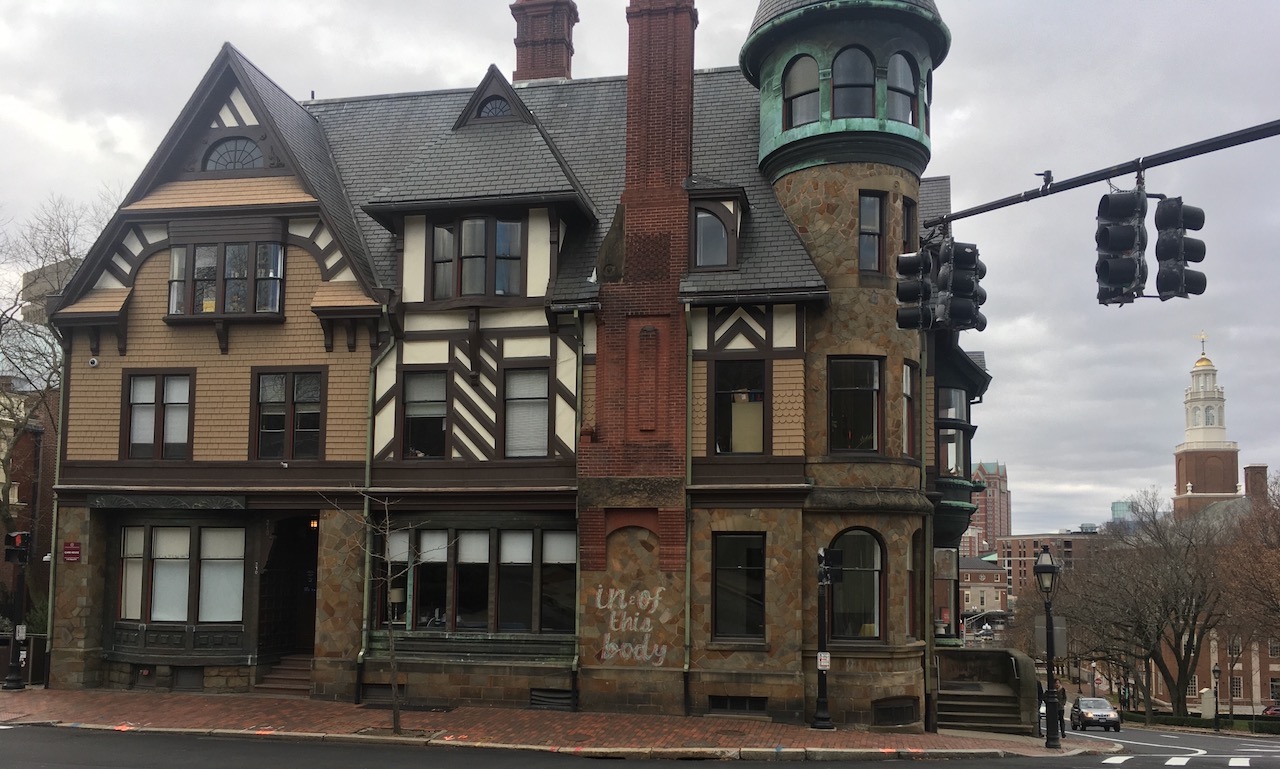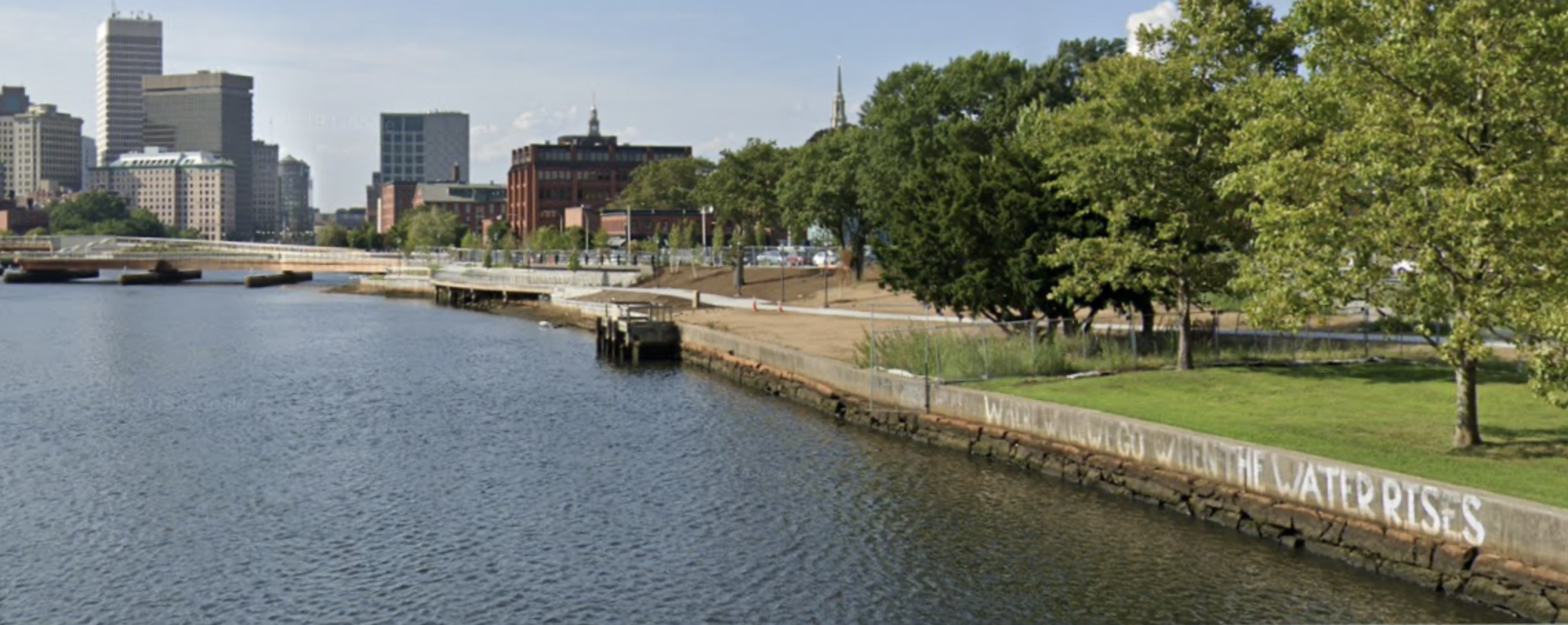You have just read a blog post written by Jason McIntosh.
If you wish, you can visit the rest of the blog, or subscribe to it via RSS. You can also find Jason on Twitter, or send him an email.
Thank you kindly for your time and attention today.

I read Alan Moore and Jacen Burrows’s Providence after it received several recent mentions on my Twitter timeline. Its twelve constituent issues were published by Avatar Press between 2015 and 2017, so I’m not certain why I ran into excitement over it now. It does remind me how conversations about 2017’s Twin Peaks: The Return still spontaneously break out in online spaces I inhabit, and as these works have similar appeal, maybe I just happened to overhear a similar burst of ongoing discussion about the comic book.
The story takes place partially in Providence, Rhode Island, a city I lived in for less than two years, but about which I have so many fond memories and associations. Providence appears here in its aspect as the hometown of H. P. Lovecraft, with a story set during his lifetime. I don’t count myself an especial HPL fan, and I make the obligatory genuflections to acknowledge the deeply problematic aspects of his work. But I do admit to feeling a slight special connection to him through our century-removed mutual love for gray old New England, and for this city in particular. And anyway, as a participant in 21st century western culture, I soak in HPL-derived stories and media whether I like it or not—just like you. This latter fact turns into a central theme of Providence.
Wikipedia tells me that Providence “is both a prequel and sequel to” two other comics projects by Moore. I did not know that until just now, so I can offer my deep enjoyment of this work as proof that one needn’t have read the others first. The past Moore work I instead compared this to was From Hell (which I’ve written about before). Both works play in the secret history subgenre of fantasy, with each putting forth the notion that magicians in centuries past engaged in sinister necromancy in order to fundamentally change the reality of the reader’s time. But that turns into a bit of a fake-out here!
For much of the work’s first two acts, I enjoyed Providence as a another modern “Lovecraft remix”, continuing the tradition of decanting that writer’s core concepts of cosmic horror into new stories palatable to a more tolerant and diverse 21st century readership. I’ve written about various recent examples in Fogknife before, including Night in the Woods, The Dream-Quest of Vellitt Boe, and The Outside*. As with these other works, Providence declares its independence from the source by making the protagonist someone that bigoted Lovecraft himself would reel at. In this case, Robert Black is queer and Jewish—albeit closeted about both, living as he does in early 20th century America.
I had a great time following the would-be novelist Black as he rambles around New England in an investigatory mode classic to the genre, meeting weird people doing weird things. He does not let the fact he often barely escapes from these interviews alive stop him from charming and befriending almost every subject. He’s a great guy—and perhaps a bit of a naive doofus, not connecting the extremely clear dots even as he writes them out longhand in the diary and scrapbook whose reproduction makes up about a third of Providence’s content. (This, too, reminded me of Moore’s extensive endnotes in From Hell, but in this case all presented wonderfully in-character).
The book quickly makes a sort of running gag of Black writing out “story ideas” for his novel that quite precisely describe the way every chapter drives him deeper into intractable peril. Deliciously, this starts to get less funny by degrees, his self-deceptive cover-story of merely conducting research for a novel growing ever thinner. As Black continues to congratulate himself on his own inventive imagination, it dawns on the reader how his subconscious desperately bangs at the mental partition, begging for his conscious mind to put two and two together. But alas—and in accordance to the rules of the genre that Black himself happily writes out—the sanity-preserving parts of his mind know precisely what they’re doing by absolutely refusing to know what they’re doing.
Similarly, the initial half of the story invites any reader with even a passing familiarity with the source material to feel familiar, even cozy. When Black spends a day hobnobbing with a community of fish-people, or shares a hypnotic dream with a scholar where an army of friendly cats bear them aloft over shadowy dangers, I recognize the Lovecraftian referents and feel quite grounded. But then, thrillingly, that ground gives way completely when Black at last arrives in the eponymous city for the final act, where occurs a meeting that speeds his own adventures to their wholly unavoidable close, and then shuts the book on literally everything else over a two-issue epilogue.
Horrible story! So much fun, and deeply, dizzyingly disturbing. Really just awful. It’ll make you feel terrible. I loved it, and I shall now vanish for a time into its panel-by-panel annotation fansite.
The remainder of this post discusses the ending of “Providence”, so stop here if you want no spoilers. For the record, the work contains a fair amount of explicit sex, both consensual and otherwise, as well as gory violence. I purchased and read it on my iPad as twelve individual issues via Comixology.
The epilogue of Providence left me feeling profoundly mournful. After some hours of quiet meditation in the dark—I could not possibly sleep, not after reading the final three issues last night—I realized how tightly it aligned with my fears about climate change.
The handful of survivors in the last pages find themselves in a world suddenly and radically transformed, perhaps due in small part to their own actions but mostly through larger societal and historical forces they had no say in. The horror was all around them for all their lives, and nobody seemed to care, at least until it was far too late for caring.
The new world seems to allow humans to exist, but only indifferently; the days of the earth as nurturing mother have come to an end. The survivors discuss the rationality of suicide, or escaping by embracing violent madness—with examples of both flowering graphically all around them. But in the end, they assert and retain their humanity by making the least sensible and most human choice of all: they decide to accept their new circumstances, and adapt as best they can.
And this, too, is my stance in the face of the non-metaphorical cataclysm already well underway. It’s all I have. I carry hope and optimism of a sort, but any hope for an alternate future—for an “elder sign” that would avert disaster entirely—has long since been carried away from me, in torn and fluttering pages, by the river of apparent inevitability.

This article was also posted to the “books” section of Indieweb.xyz.
* I just realized all of these works are either written or significantly co-written by women, so how about that.
Next post: An unsolicited thought about make-believe murder
Previous post: I watched Scarface (1983)
To share a response that links to this page from somewhere else on the web, paste its URL here.